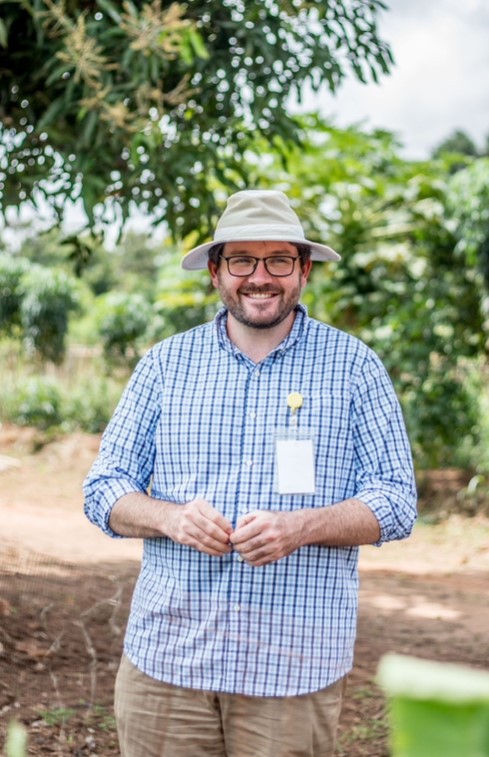 Dr. Derek Barchenger
Dr. Derek Barchenger
UNITED STATES
Dr. Derek Barchenger, Senior Scientist and Head of the Global Pepper Breeding Program at the World Vegetable Center (WorldVeg), has been named the 2025 Recipient of the Norman E. Borlaug Award for Field Research and Application, Endowed by the Rockefeller Foundation. He is recognized for advancing pepper breeding to enhance nutrition, productivity and climate adaptability for hundreds of thousands of smallholder farmers worldwide.
Over 41 million tonnes of peppers are produced annually, mostly by smallholder farmers who rely on the crop not only for income but also as a critical source of essential micronutrients, including vitamin C and provitamin A. Barchenger has made it his life’s work to improve the productivity and climate resilience of the diverse Capsicum species, which include bell and chili peppers.
Barchenger’s accomplishments are deeply rooted in a life of purpose and scientific curiosity. Raised on a family farm in Oklahoma, he was captivated by the diversity of peppers growing in the garden—an early fascination that shaped his professional journey. This deep interest was further amplified during Barchenger’s doctoral studies in the Southwestern U.S., where he learned about the cultural importance of chili peppers—from their spiritual significance to their historical use as currency. When the opportunity came for him to dedicate his research to this remarkable crop, he leapt at the chance.
Barchenger’s passion for solving the increasing challenges facing pepper growers—diseases, rising temperatures and changes in climate which threaten yields and quality—led him to the World Vegetable Center. He joined WorldVeg in 2016 as a United States Borlaug Fellow in Global Food Security, later becoming a postdoctoral fellow in 2017 and quickly rising to lead the global pepper breeding program at WorldVeg in 2018.
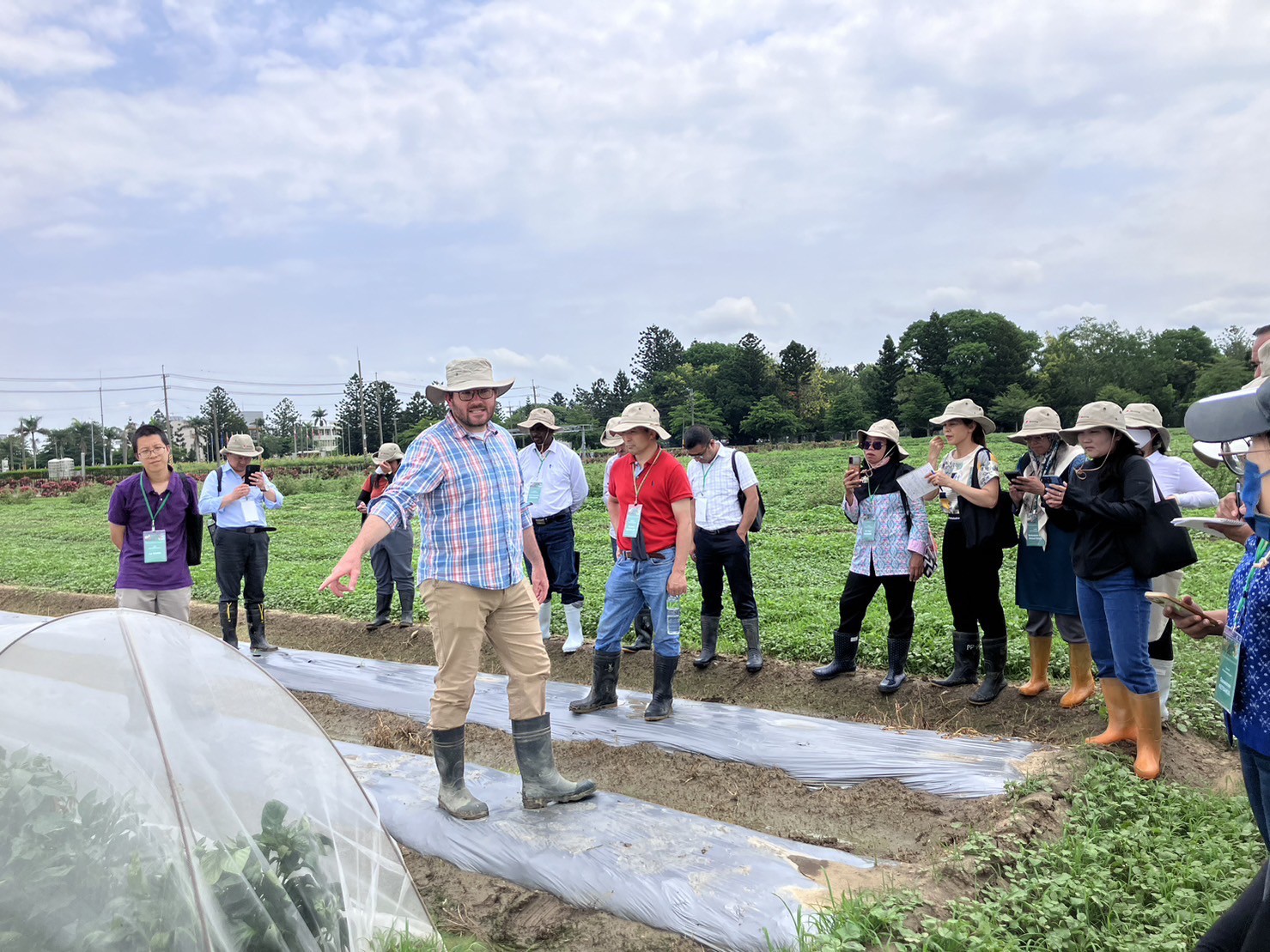
Through his leadership at WorldVeg, Barchenger has brought renewed energy and strategic direction to the breeding program. He has transformed what was a small, Taiwan-based team of 10 to a global, multidisciplinary research group of over 20 scientists and field staff with coordinated breeding programs in India and Benin and testing sites across the world. His collaborative leadership extends to major regional networks spanning Asia, Africa, Latin America and the Caribbean, through which he promotes regional capacity building and research co-development. Every breeding initiative is demand-driven, beginning with a rigorous market and needs analysis to ensure the improved varieties align with farmer needs and regional constraints.
Barchenger has built partnerships with dozens of seed companies to release WorldVeg varieties bred to withstand climate extremes as well as pest and disease pressures. Under his leadership, WorldVeg has released 24 new pepper varieties since 2018. They also release 12 new pepper germplasm lines annually to consortiums in Africa and Asia—lines now used by more than 50 seed companies. In 2024, those companies reported sales of 20 tonnes of pepper seed containing WorldVeg lines, enough to reach 300,000 farmers.
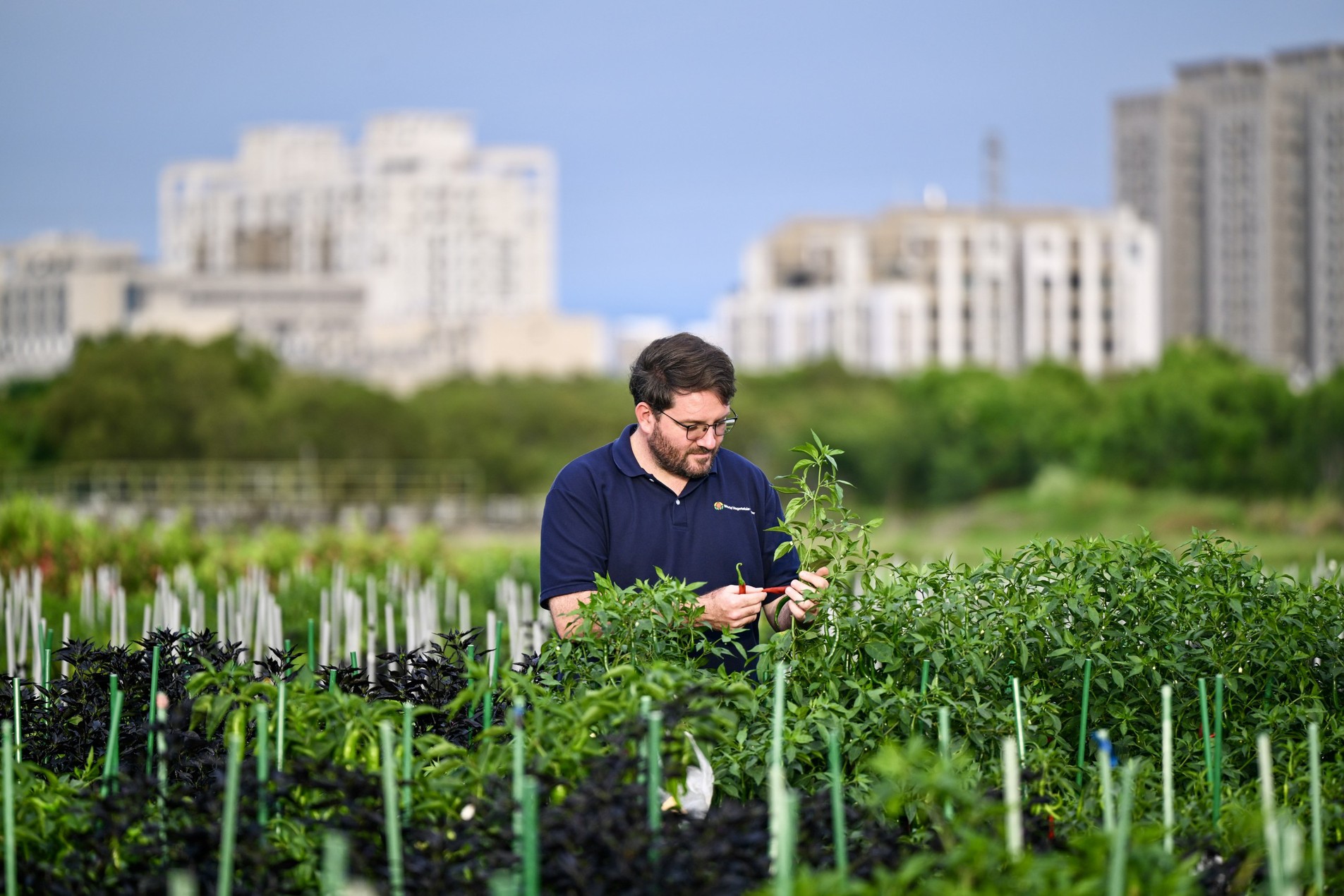 Barchenger has spearheaded innovations in pepper breeding by pioneering the use of high-throughput phenotyping tools to fast-track pepper breeding, expediting the delivery of high performing varieties to smallholder farmers around the world. Through this, he discovered that changes in leaf angle, among other traits, contribute to heat tolerance in pepper plants, which he and his team then used to select and breed heat-tolerant varieties. He also identified sources of genetic resistance to diseases like anthracnose fungus and begomovirus leaf curl, which quickly became “must-have” traits for new pepper varieties around the world.
Barchenger has spearheaded innovations in pepper breeding by pioneering the use of high-throughput phenotyping tools to fast-track pepper breeding, expediting the delivery of high performing varieties to smallholder farmers around the world. Through this, he discovered that changes in leaf angle, among other traits, contribute to heat tolerance in pepper plants, which he and his team then used to select and breed heat-tolerant varieties. He also identified sources of genetic resistance to diseases like anthracnose fungus and begomovirus leaf curl, which quickly became “must-have” traits for new pepper varieties around the world.
In a bid to further streamline pepper breeding, Barchenger worked to conserve and share genetic resources. In 2024 alone, he shared more than 1,000 WorldVeg-developed pepper lines with partners in 45 countries across Asia, Africa, Europe and the Americas. He also developed the first Capsicum core collection, which represents the available variation of certain traits in the pepper genepool. He and his team have used this collection for groundbreaking research on flavor, disease resistance and other traits.
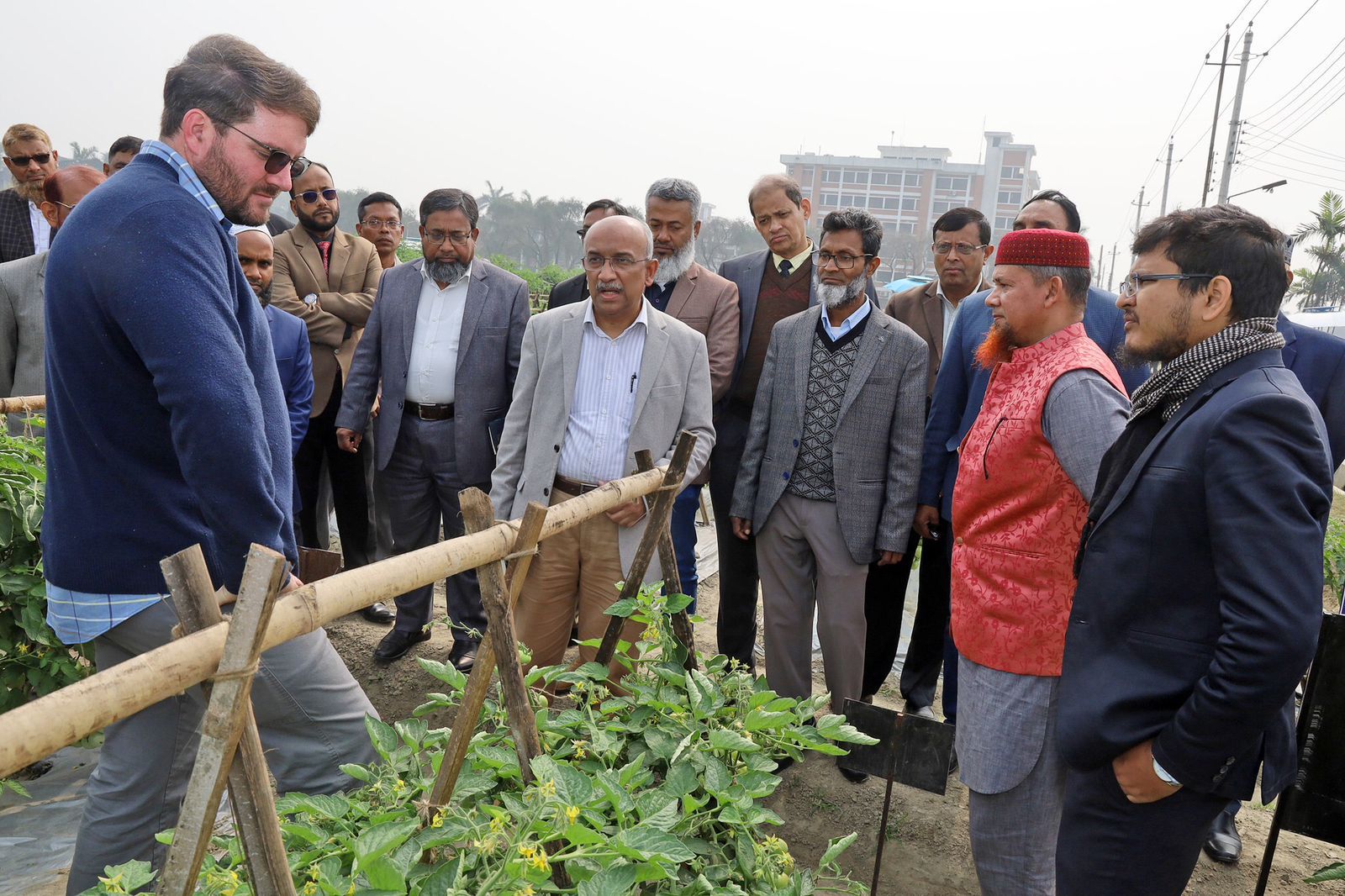 These advancements have established Barchenger as a global leader in his field, and in 2022 he was appointed by the Asian Food and Agriculture Cooperation Initiative (AFACI) of Korea to lead a major regional project providing farmers in 14 Asian countries with vegetable breeding lines, advice and training. After just three years, almost all participants have produced lines ready for release. He also played a pivotal role with the Global Crop Diversity Trust in developing the Global Capsicum Conservation Strategy, a worldwide effort to safeguard pepper diversity and strengthen its use.
These advancements have established Barchenger as a global leader in his field, and in 2022 he was appointed by the Asian Food and Agriculture Cooperation Initiative (AFACI) of Korea to lead a major regional project providing farmers in 14 Asian countries with vegetable breeding lines, advice and training. After just three years, almost all participants have produced lines ready for release. He also played a pivotal role with the Global Crop Diversity Trust in developing the Global Capsicum Conservation Strategy, a worldwide effort to safeguard pepper diversity and strengthen its use.
Barchenger’s work has produced high-impact outcomes for both science and society. He has co-authored more than 45 peer-reviewed articles on pepper science and trained more than 300 scientists and students. A testament to his status as an internationally acclaimed scientist, he was selected to organize the 2026 International Pepper Conference. Cultivars produced by Barchenger’s team have improved yields and pepper quality, creating new market opportunities for farmers and enhancing sustainable agriculture practices globally.
Barchenger has elevated the relevance of pepper breeding and science across the entire value chain, from genetics and seeds to production, markets and consumers. He has helped position pepper as a priority crop on the agendas of public and private organizations worldwide. His work exemplifies the potential of demand-driven vegetable crop improvement to enhance nutrition, increase climate resilience and create opportunities for smallholder farmers around the globe.
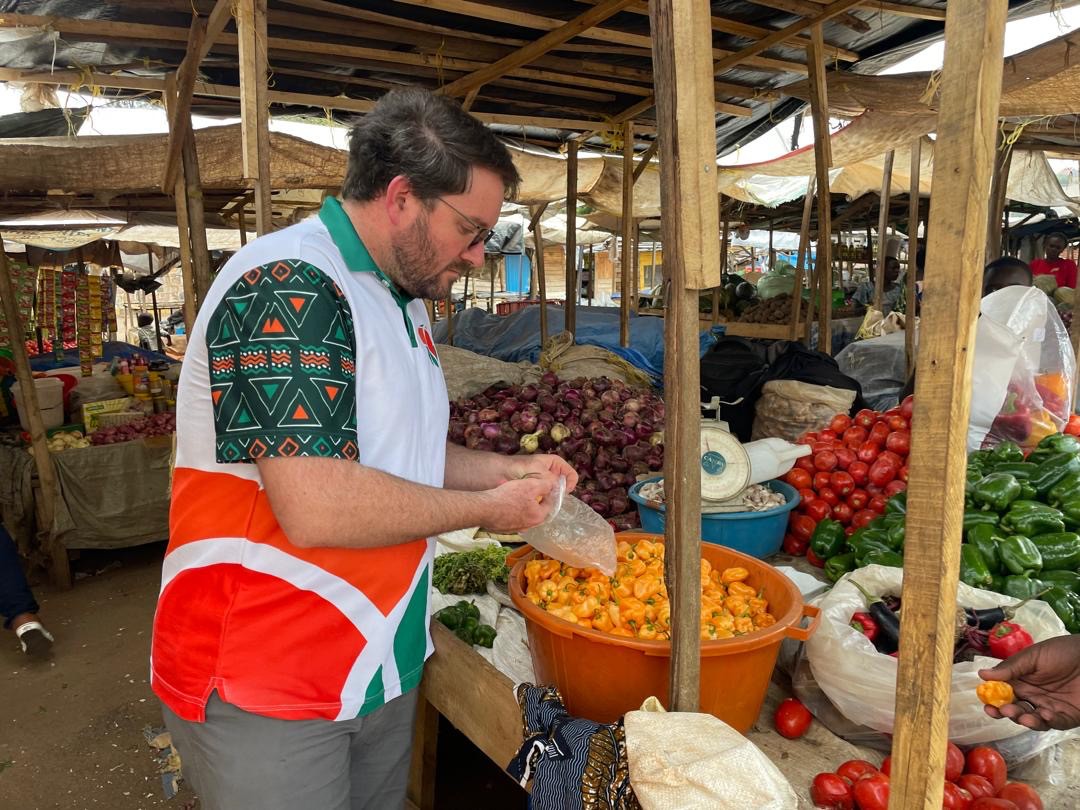
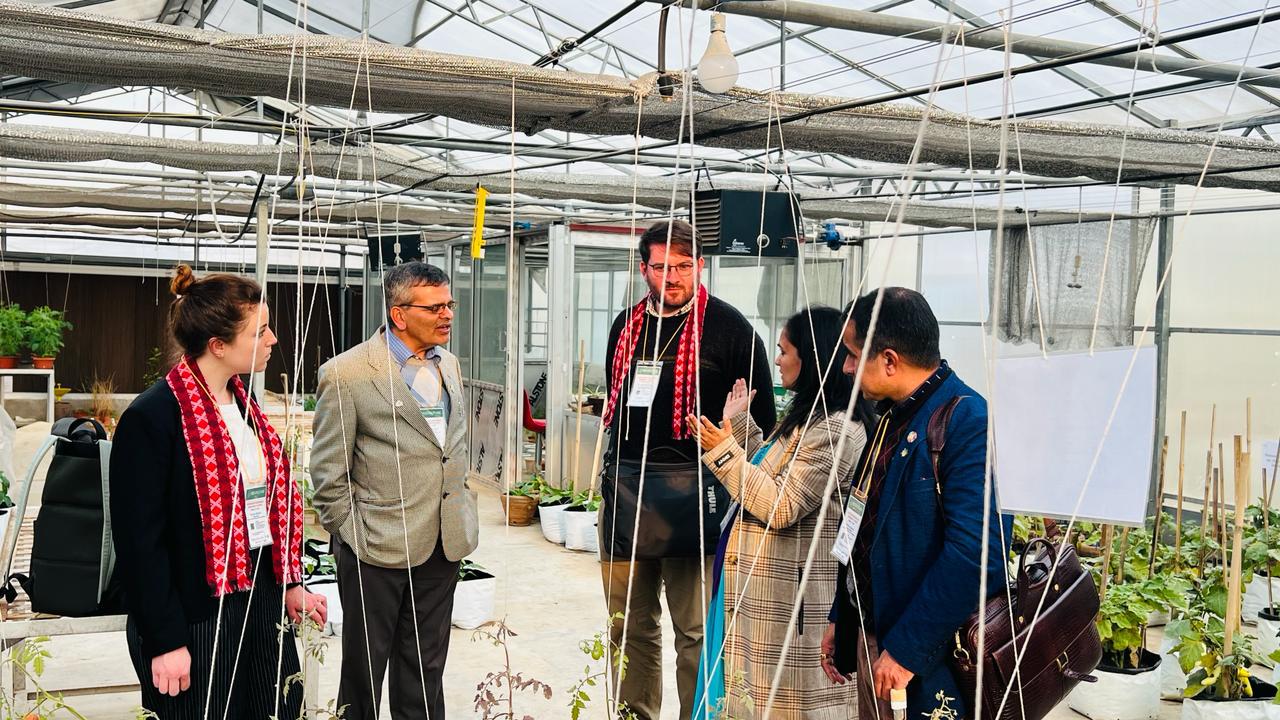
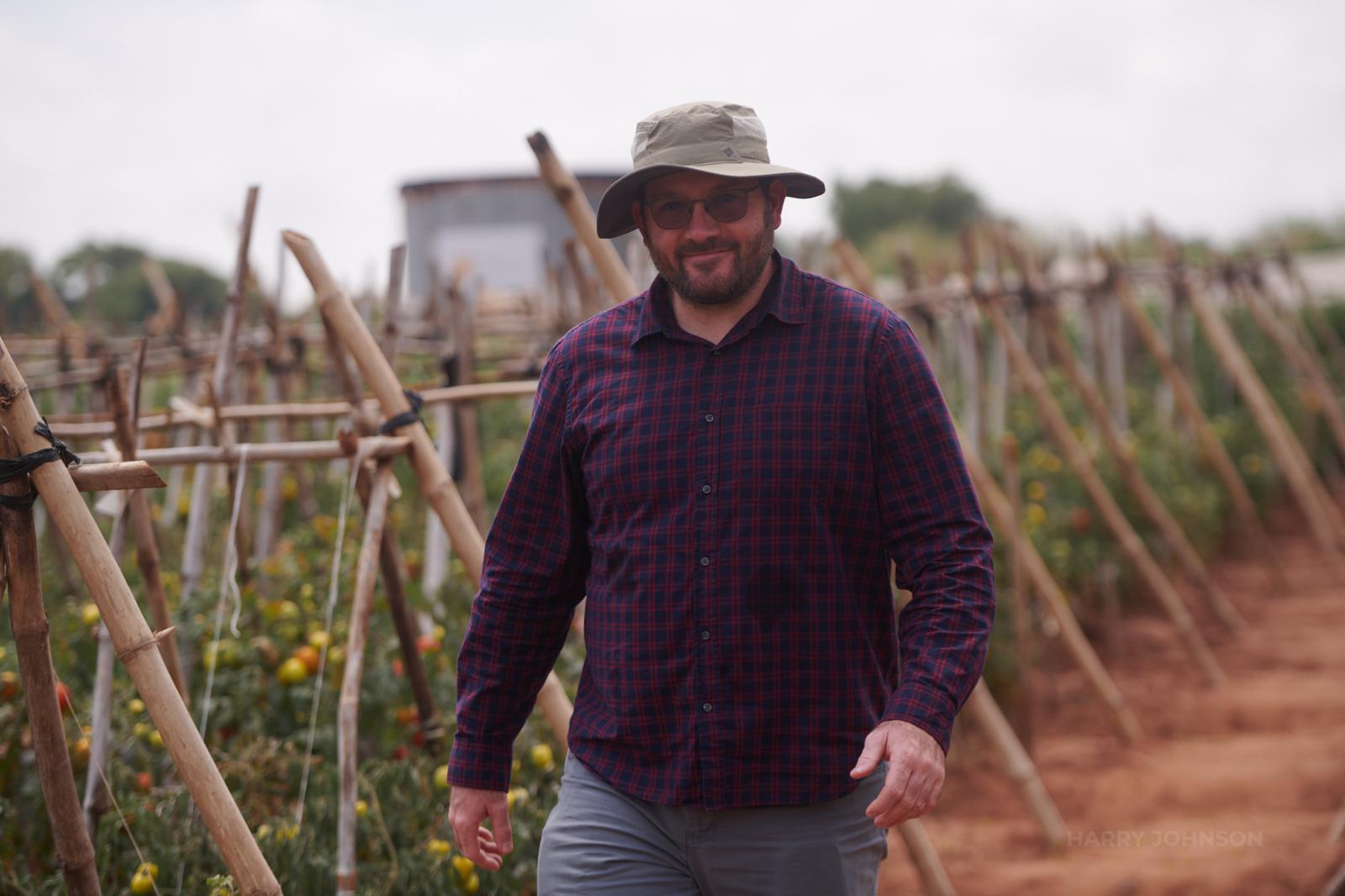
_______
Barchenger holds a Bachelor of Science in Horticulture from Oklahoma State University, a Master of Science in Horticulture from the University of Arkansas and a Ph.D. in Plant and Environmental Sciences from New Mexico State University.


